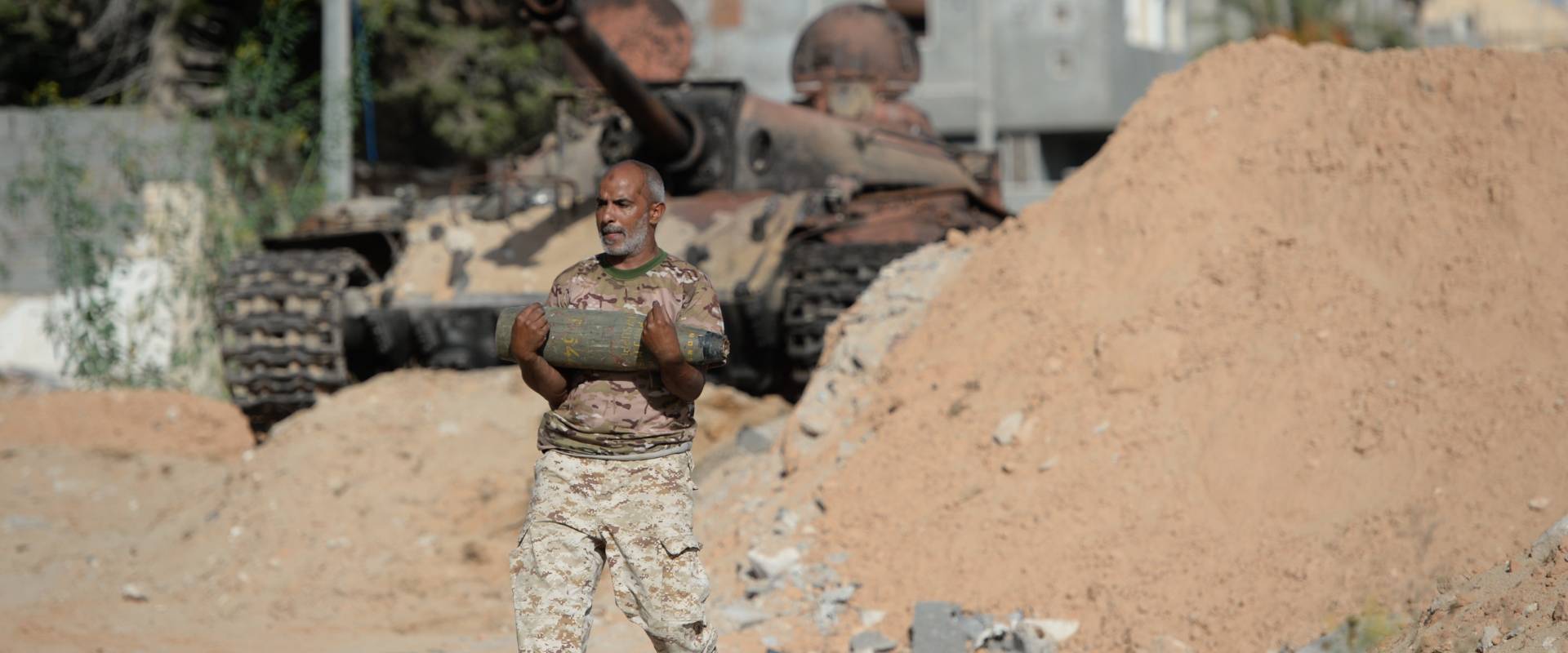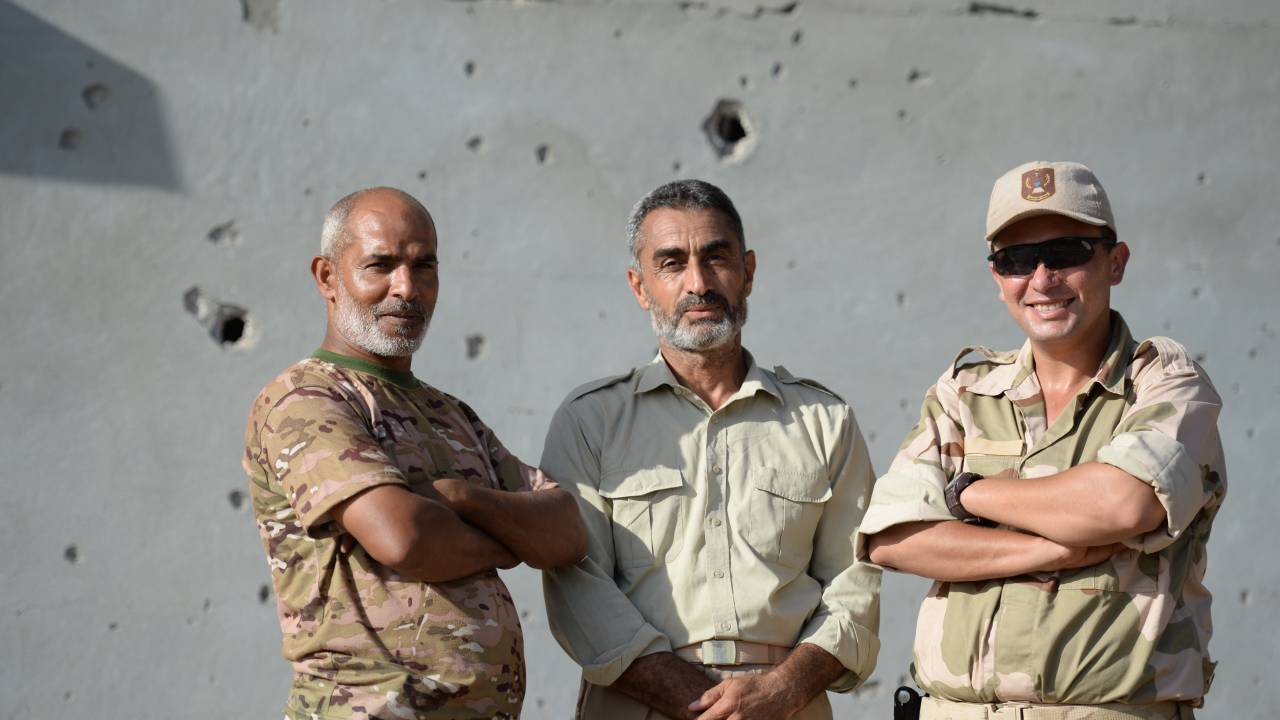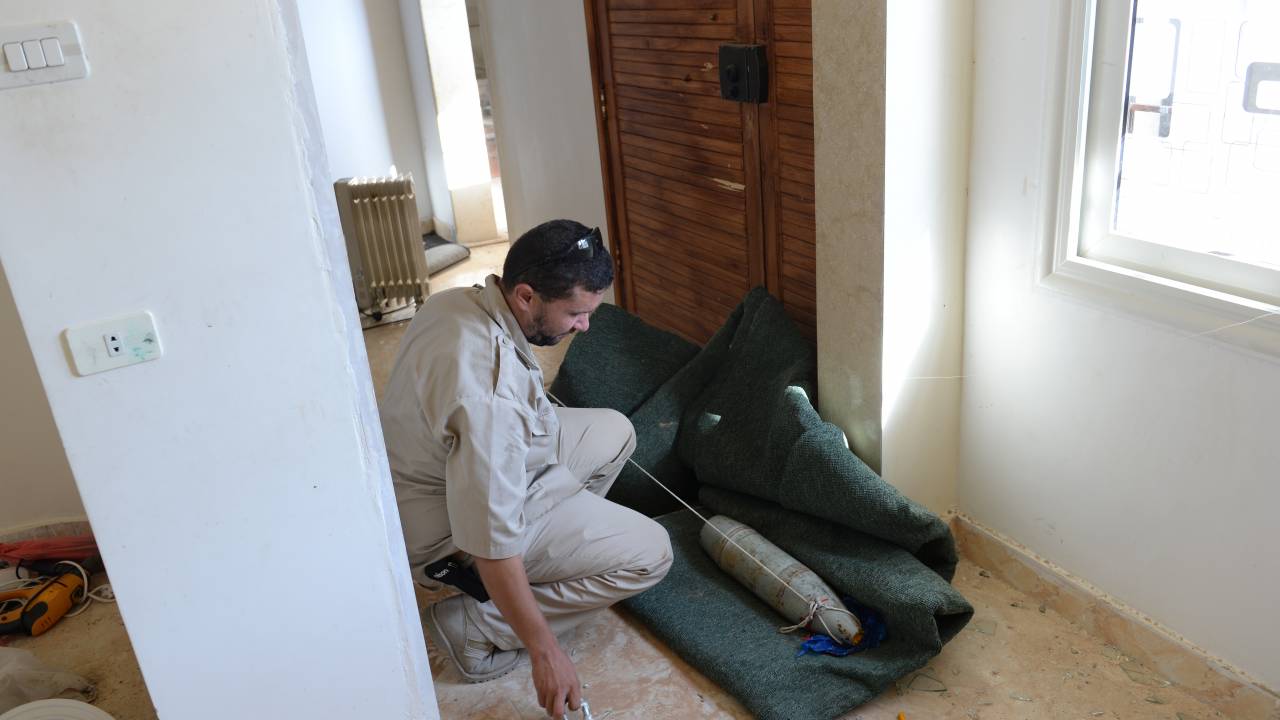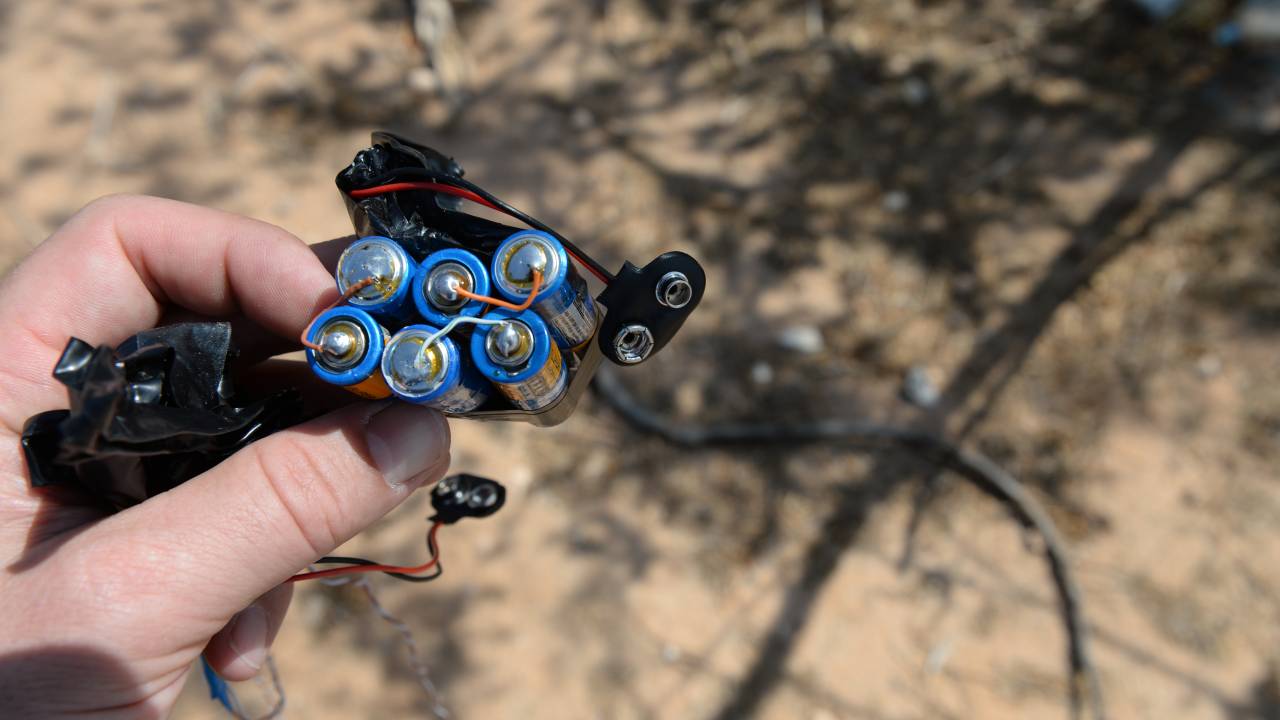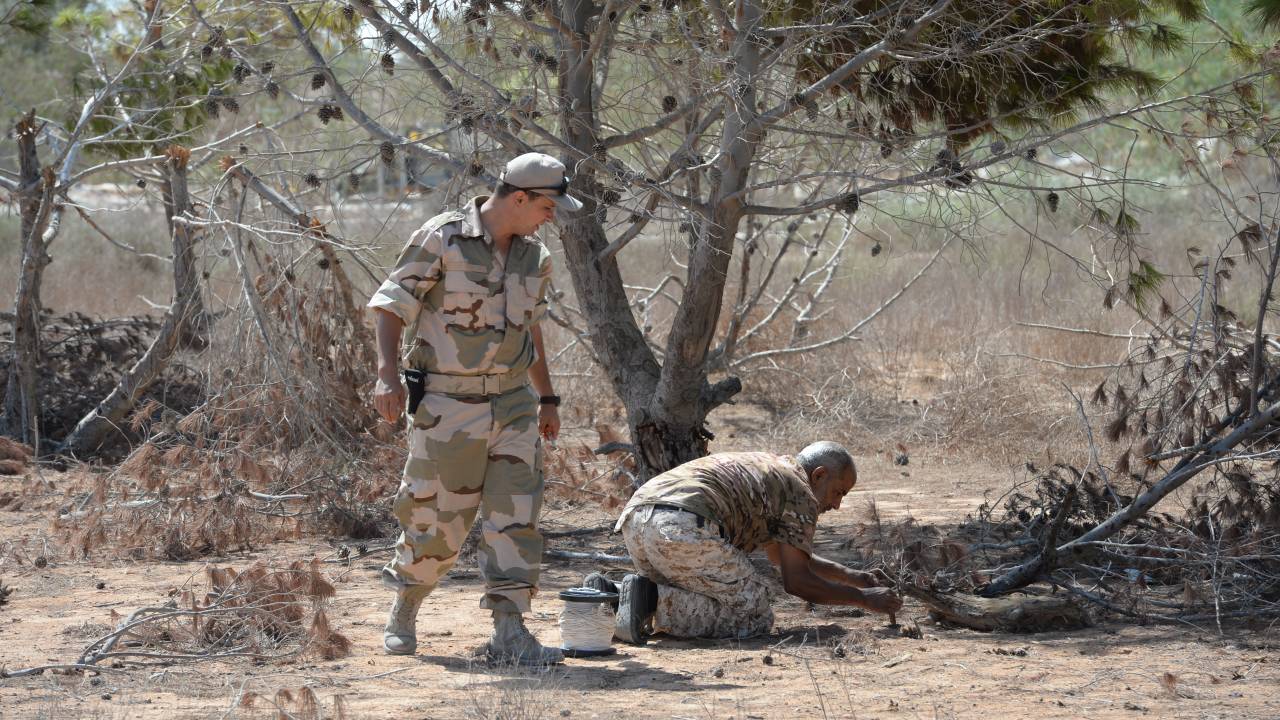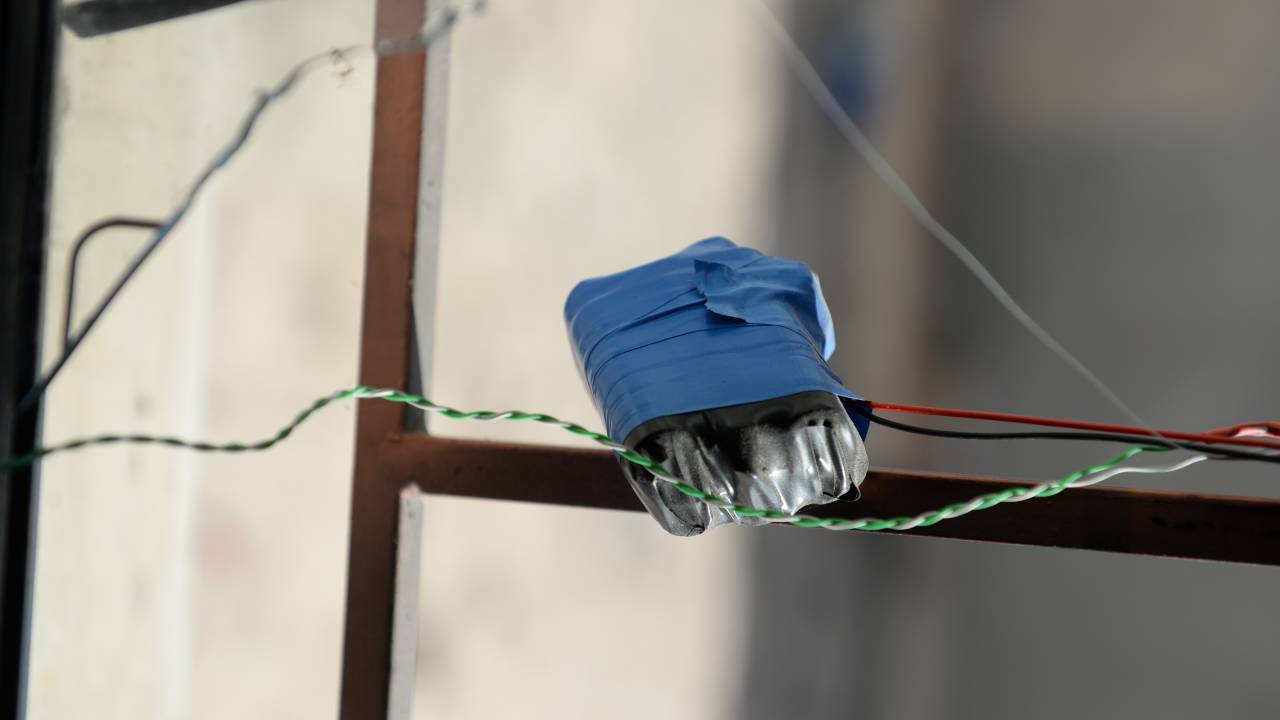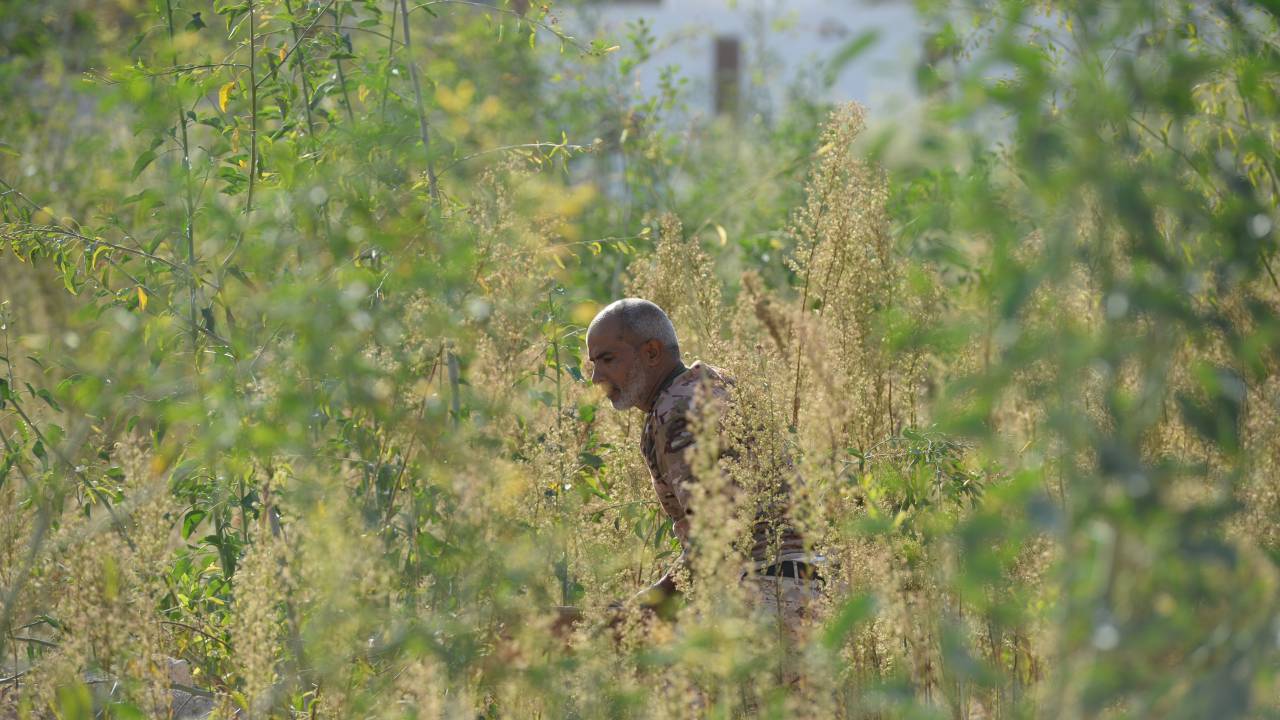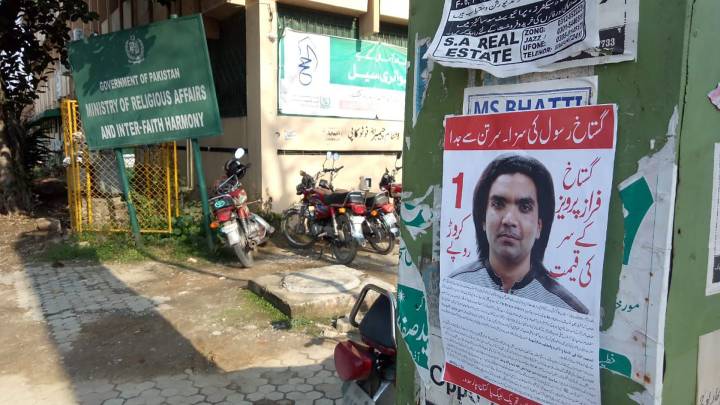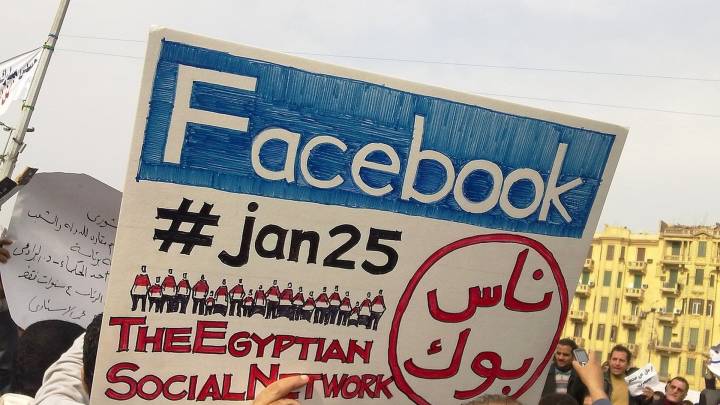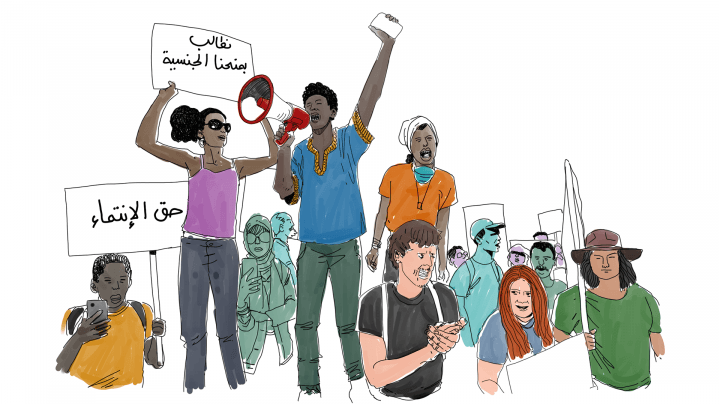Colonel Khaled Hanka has been locating and defusing hidden explosives for over thirty years. The Libyan civil war, unfortunately, continuously presents him and his bomb squad with new challenges. This summer, his men are headed to the capital.
Tripoli, July 2019
After hours of waiting for official permission, we finally meet the military bomb disposal service in their base in Tripoli, three years after our first meeting with them in Sirte. Colonel Khaled Hanka, leader of the team, hasn’t changed a bit. He still has this almost charismatic aura about him. An aura of calmness and control, as if things will never get out of hand when he is in charge. With his gray hair and beard, his thick dark eyebrows and affable smile, the colonel – he is 52 – looks and in fact is the eldest and most experienced one of the group. He is known as the Sherlock Holmes of the explosive detectives. Not a single boobytrap escapes his eye, whether in urban or outdoor areas.
In October 2016, we spent three days with him and his men while they were cleaning the outskirts of Sirte where the houses were packed with boobytraps and bombs. This time they have a completely different task. The team is part of the army that supports the Libyan Government of National Accord of prime minister Fawwaz Sarraj. It’s the middle of summer and it’s scorching hot in the city torn apart by civil war. Since April, the self-proclaimed Field Marshal Khalifa Haftar has been making frantic efforts to gain control of Tripoli. His troops, the Libyan National Army (LNA), oppose the militias fighting for the UN-backed government of Sarraj.
Haftar wants to break the power of the many militias in Tripoli, which include several criminal and extremist units. Once the militias disappear, Libya can take its first step towards more stability, Haftar says. Since the downfall of Muammar Gadhafi in 2011, the country suffers from chaos and internal conflicts. Sarraj’s government claims that Haftar only wants to reign by himself and that a new dictatorship will arise when he takes over control.
The civil war brings about new tasks and challenges, Colonel Hanka explains. “We are currently active on the frontline in Tripoli. The area is covered with mortars and grenades that have ended up on the ground but did not explode. The difference with Sirte is that there are no mines here. But we find nasty stuff here too, including illegal fragmentation bombs, dropped by Haftar’s troops.”
The Colonel started his career in demining when he was in his early twenties, after he graduated from military school in Tripoli. Since then his life has been revolving around explosives. Through the years he has witnessed how boobytraps and mines have evolved, leading to a dirtier kind of warfare: “The explosives are still as heavy as they used to be, the Islamic State, however, did use more boobytraps than we have ever seen before. And they were incredibly creative in hiding the bombs at unexpected places. When it comes to that, the work we do now at the frontlines around Tripoli is much easier. We do know what kind of explosives we can expect on the ground and they are not hidden.”
Throughout his career, he only had a few minor accidents, the Colonel says humbly. When I last met him in 2016, he told me he had never lost a man. His bomb squad consists of twenty men. After 2.5 years of cleaning Sirte, they are all still sound and safe, Hanka says with a smile.
The bomb disposal team has temporarily suspended its activities in Sirte because of the battle in Tripoli. But one day they will have to continue their former task. Given that many bomb squad members have received poor training, they are currently trained by American and British experts. They are now able to clear the area faster, but it remains a considerable undertaking in Sirte. Hanka’s team of twenty men works according to a fixed system. The men are divided into groups of three: the first detects the bomb or the mine, the second defuses the explosive and the third are medics, stepping in whenever something goes wrong. Each team works three days in a row and is then relieved by another team. “There's still one big district in Sirte left that needs to be cleared: Al-Askariya,” Hanka says. “It was the last IS bastion and the most difficult to clear, because it is packed with bombs. The residents absolutely cannot return until we’ve cleared the area entirely. I estimate this will take another two years.”
At the age of 52, Hanka has already had a long and intensive career as a bomb disposal expert. Is he thinking about retiring yet? “Not at all. There is still so much work to be done. I won’t stop until the last bomb in this country has been defused.”
Sirte, September 2016
The bomb is hidden in a rolled-up carpet in the corner of the room. It is attached with three almost invisible fishing lines: one to the window frame, another to the front door, and the third one is stretched in front of the doorway that links the kitchen to the living-room. Through the broken window, we can only see the blue tape stuck to the top of the explosive. Bomb squad member Mohammed Friwan carefully crawls under the line at the doorway and tells us to wait outside, because he first wants to know what type of bomb he’s dealing with. We stand there in the scorching heat, waiting on the street.
Abandoned houses surround us. Empty streets. Ghost town. Grey pieces of rubble. Concrete that has been blown to pieces. Occasionally the slightest sea breeze. The beach on the Mediterranean Sea is only a few hundred meters away.
We’re in district number 2, which has only recently been reconquered from the Islamic State. By now, eighty percent of Sirte has been liberated. The jihadists have been driven out of all but one district. In the northeast of the city, where they are still holding out, there is a lot of fighting. The rest of the city seems abandoned. The road we’re looking at has long been a frontline between IS fighters and troops of the Libyan Government of National Accord (GNA). The IS has the habit of filling the access roads to their strongholds with bombs and boobytraps. That’s why the Libyan bomb disposal unit first and foremost wants to clean up the outskirts of district 2. The neighbourhood is closed off. Residents are not allowed to return to their homes until the bomb squads have done their job, which may take months, if not years.
Our interpreter slowly walks back to the house that contains the bomb. Two bomb disposal experts are in the kitchen, while their colleague kneels in front of the enormous explosive. We watch him disconnect the detonator with utmost caution. Sweat beads his face. It’s a tank shell, he says. Caliber 122. Heavy stuff. A sigh of relief sounds as he diffuses the bomb. “I always do that. Letting out a sigh of relief,” Mohammed Friwan says smiling. “I know what I’m doing – otherwise I would not allow you to be here – but it always is a tense situation.” Colonel Hanka is leading the team. He nods approvingly and tells us that he has found yet another bomb alongside the house. Usually, he just spots an explosive with the naked eye, but sometimes he uses a metal detector. They don’t have a robot, nor do they have protective clothing. Hanka and his men only wear a protective vest and helmet when they detonate bombs on the spot. The remainder of the objects found are put in the trunk of the car and will be detonated later that day.
In a field next to the house, between the bushes, lies the recently discovered bomb. “Three wires go from the bomb to the side wall of the house,” indicates Hanka. “IS does that a lot, because they know that their enemies remain close to the walls to stay out of the sight of snipers. So, the trick is to stay away from the walls.” It’s Mohammed Friwan again who kneels next to the bomb. After a few minutes, he shouts that he has defused it. Friwan shows us how the detonator is attached: a peg is taped to a branch with orange tape. There are some wires and a piece of paper attached to the peg. From the moment someone walks into one of the fishing lines, the piece of paper is yanked from under the peg and the ignition is set into motion. As simple as that. But with severe consequences. The bomb is a bit bigger than the one we found in the living room; it is at least a meter long. “Those bastards weigh 45 kilograms,” says Friwan as he picks up the bomb and takes it with him.
How does he deal with the continuous risk of getting killed, we ask Hanka. “It’s a responsible job that nobody wants,” he says. “But somebody has to do it. It's also very nerve-racking, I don’t deny that. I’ve already seen the craziest things in Sirte. Bombs in toilets, in boilers, in a fridge...”
Al-Sharifi shows his forearms. They are covered with little scars.
“An explosive detonated in my hands. Colonel Hanka got hurt on his leg once. We’ve been doing this job for years, so it’s not that bad. Fortunately, no one has died so far. But you have to be constantly super alert and fully aware that this is dangerous work. Stick to the rules because they are all you’ve got.”
“Yes, we’re afraid,” answers Colonel Hanka even before I ask him. “But we keep it under control. If I fail to defuse a bomb right away and I’m starting to get nervous, I just leave. And wait. A whole day, if I have to. You can’t work properly if your fear takes over.”
“And yet, you never know,” stresses Mohammed Friwan. “Things almost went wrong with another bomb defusing unit this morning. It happened close by. They found a wheelbarrow full of loaves of bread, there appeared to be a bomb underneath. One of the bomb squad members walked into the wire. Stupid, but the damage was done. The detonator with the peg flew against his chest. He ran away and shouted to his colleagues to do the same. They waited around the corner. The bomb detonated a couple of minutes later. Apparently, the peg to which the detonator was attached, no longer closed entirely because of some dirt. This slowed down the process, which saved the men’s lives. They were incredibly lucky.”
Colonel Hanka gets up and disappears around the corner of the house. A few moments later, we see him standing on a two-meter-high wall scanning the inner courtyard of the house. He appears to have seen something. A fishing-line attached to the inside of the gate is connected to an explosive near the wall on which Hanka is standing. His colleague doesn’t hesitate for a second. He climbs over the wall, armed with a pair of nippers. “My weapon, ” he grins. Moments later, he opens the gate from the inside and shows us where the bomb is located. At eye-level we see two metal dustpans that are glued together.
We have seen a similar dustpan-bomb in the office of the bomb squad this morning. It’s stuffed with bullets and shrapnel. As soon as the explosive detonates, the whole content hits you right in the face and chest area. “Very nasty,” Hanka mumbles, shaking his head. We’re still recovering from the shock when he discovers a new bomb on the driveway a few metres away. Hidden behind a pile of wooden planks. Hanka enters the house and returns soon. There are three more bombs inside. Close to the stairs, in the hallway and in the living room. The house is fully cleared of bombs only by the end of the day. The sun is setting; it is time to leave this ghost town.
Our interpreter tells us that the UN has repeatedly offered Colonel Hanka job opportunities abroad, for which he would receive a few thousand Euro a month. Hanka declined every single offer, as he was needed more in Libya, he said. Here, he earns about 400 Euro.
When we see him again in July 2019, he still works for the same fee. “It is not about money, not about building a career”, the Colonel reacts. “I do this because I care for this country, no matter what mess we are in. I care for the people. It does not look like things will get better soon, so the least I can do is stay and do my duty. It is my life and it makes me happy.”
On 2 October 2016, five days after we met Colonel Hanka and his colleagues in Sirte, the Dutch photographer Jeroen Oerlemans was shot at the frontline in Sirte by a sniper of IS. This was his last photo reportage. He was 46 years old.

